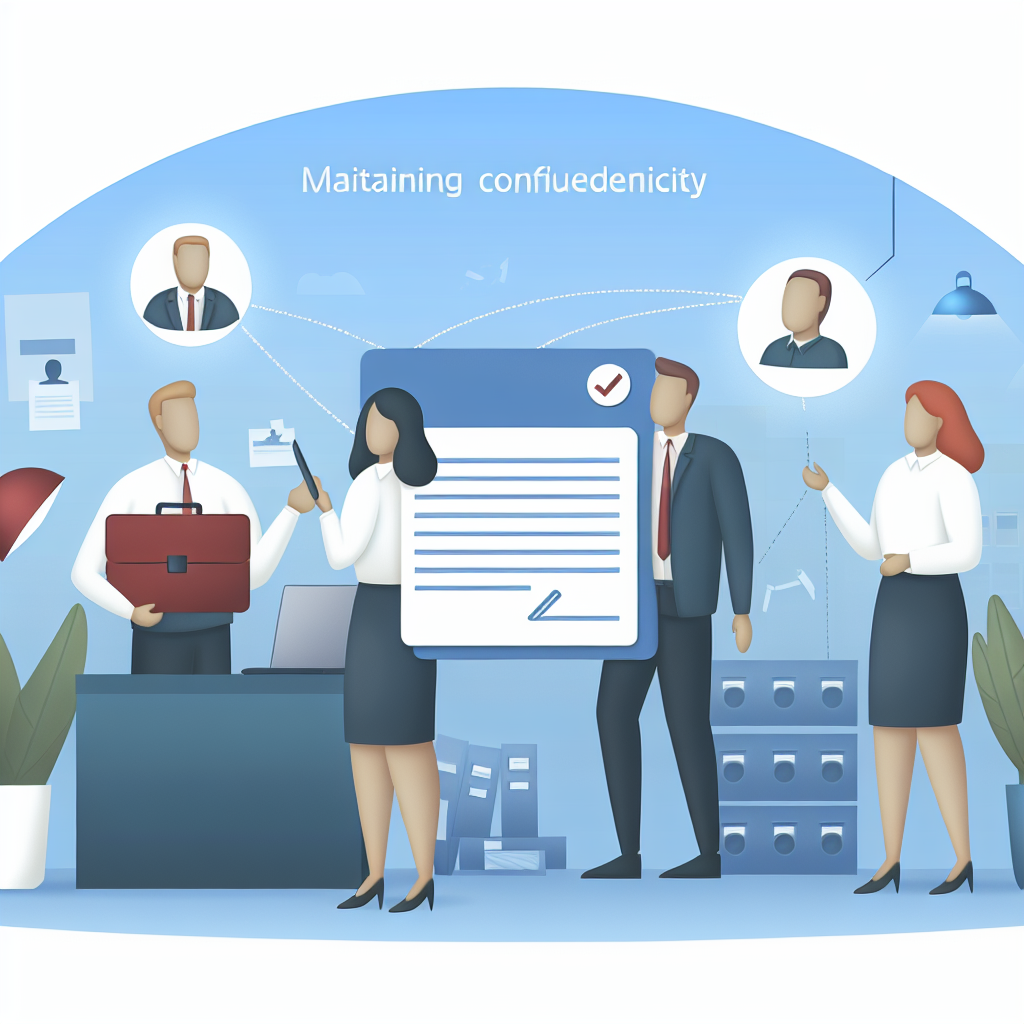
In today’s competitive business landscape, maintaining confidentiality at work is not merely a best practice; it is essential for safeguarding sensitive information, fostering trust, and preserving an organisation’s reputation. As HR professionals, understanding and implementing effective confidentiality measures is crucial to protect not only the company’s data but also the trust your employees and clients place in you. In this article, we will delve into the significance of confidentiality, current trends shaping our approach, and practical steps for HR departments to follow in 2024.
Significance of Confidentiality at Work
Confidentiality serves as a cornerstone for any successful business. Here are several reasons why it is vital:
- Protection of Sensitive Information: Confidentiality measures help ensure that sensitive information—be it employee personal data, business strategies, trade secrets, or customer details—remains secure. This reduces the risk of data breaches that can lead to legal ramifications and substantial financial losses.
- Building Trust: Keeping sensitive information private fosters trust between your organisation and its clients. In high-stakes industries such as healthcare and finance, clients are more likely to engage with businesses that demonstrate a commitment to safeguarding their data.
- Preserving Reputation: Any breach of confidentiality can severely impact your company’s reputation. Loss of trust among clients and employees can lead to decreased productivity and a tarnished public image.
Current Trends in Maintaining Confidentiality
As we evolve in 2024, HR professionals must stay informed about notable trends in maintaining workplace confidentiality:
- Employee Education: Education from the outset is essential. Employees should understand what constitutes confidential information and the boundaries regarding discussions outside the workplace.
- Legal Compliance: Adhering to laws such as GDPR in the EU and HIPAA in healthcare isn’t optional; it’s a requirement. Employers must inform employees about these legal frameworks to promote compliance.
- Advanced Security Measures: Utilising secure technology for data storage and sharing is critical. Password protection and granting access based on necessity are vital steps in safeguarding sensitive information.
- Regular Training and Monitoring: Ongoing training on security protocols is crucial. Ethical surveillance programs can help detect potential breaches and reaffirm employees’ responsibilities.
- Non-Disclosure Agreements (NDAs): Protecting confidential information through NDAs enhances accountability. Clearly outlined obligations can deter breaches during and after employment.
Key Benefits of Maintaining Confidentiality
Adhering to confidentiality policies yields multiple advantages:
- Protection of Sensitive Information: By employing effective security protocols, companies can guard against unauthorised access, ensuring that sensitive data remains private.
- Building Trust: Upholding confidentiality reinforces trust with clients and colleagues. A fortified stance on information security indicates respect for individuals’ privacy, essential in a competitive marketplace.
- Avoiding Legal Issues: Compliance with confidentiality regulations mitigates the risk of legal complications stemming from data breaches. An emphasised focus on confidentiality promotes a secure working environment.
- Preserving Reputation: A steadfast commitment to confidentiality supports a strong corporate image. When sensitive information is protected, it solidifies the company’s standing in critical industries like finance and healthcare.
Practical Steps to Maintain Confidentiality
HR professionals play a pivotal role in fostering a culture of confidentiality. Here are actionable steps to implement:
- Clear Policies and Procedures: Establish and communicate clear confidentiality policies. Employees should know what information is confidential and the proper procedures for handling it.
- Regular Training Sessions: Schedule consistent training sessions focused on the importance of confidentiality and procedural compliance. This ensures that all staff are aware of their responsibilities.
- Use of Secure Technology: Employ technology that provides robust security measures, including encrypted data storage systems and password-protected files.
- Need-to-Know Access: Limit access to confidential information strictly to those who need it to perform their job functions. This minimises the risk of unintentional breaches.
- Monitoring and Enforcement: Utilise monitoring programs to enforce compliance with confidentiality policies. Clear disciplinary measures for violations should be established to deter breaches.
Conclusion
As we move further into 2024, the significance of maintaining confidentiality within the workplace cannot be overstated. A comprehensive strategy involving employee education, robust security measures, adherence to legal standards, and ongoing monitoring is essential for protecting sensitive information and maintaining trust with clients and employees alike. By prioritising confidentiality, organisations not only protect their valuable assets but also cultivate a reputation that fosters growth and stability in an increasingly competitive landscape.
For practical guidance and secure solutions, tools such as TitanFile can help encrypt data both in transit and at rest, ensuring your organisation’s confidentiality framework remains strong and effective.
For further insights on maintaining confidentiality and fostering trust in your organisation, consider exploring resources on legal compliance and data protection standards relevant to your industry.
Vadim Kouznetsov is a distinguished entrepreneur and the visionary founder and CEO of JobXDubai.com, the UAE’s rapidly expanding job board. Renowned for his expertise in bridging the gap between job seekers and employment opportunities, Vadim has become a leading authority in the recruitment and job market of Dubai.
